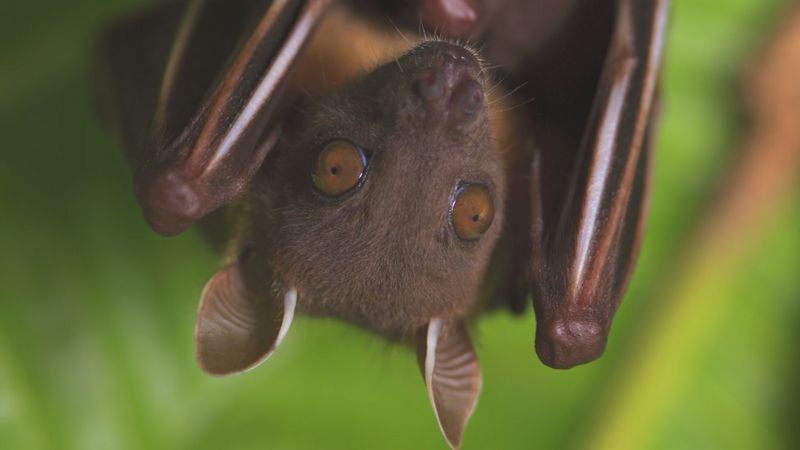Every now and then, Dr Mathieu Bourgarel seeks permission from the village elders to visit the sacred caves, bringing a gift to appease the spirits.

Donning mask, overalls, and three layers of gloves, he descends into the darkness, climbing down rope ladders and squeezing through the narrow chambers of caves.
The tell-tale odour of bats is everywhere, their excrement deposited in layers on the floor, like wading through fresh snow.
Occasionally, a bat is startled from sleep, wings brushing by as it takes flight.
People in this part of Zimbabwe call bats “winged dragons”, “flying rats” or simply the “evil ones”.
Like elsewhere in the world, the flying mammals are much misunderstood. For this wildlife ecologist, they’re beautiful and incredible creatures. “They are fascinating,” he says. “People are frightened of something they don’t know.”
Dr Bourgarel is a virus hunter for the French research institute, Cirad. Working with colleagues at the University of Zimbabwe he goes into the bat caves to collect samples and droppings from bats.
Back at the lab, the scientists extract and sequence the genetic material of bat viruses. They have already discovered different coronaviruses, including one in the same family as Sars and Sars-CoV-2.
The research is part of a worldwide effort to investigate the diversity and genetic make-up of the viruses that bats carry, providing the tools to react quickly, should people start to get sick.
“The local population frequently visits these bats’ habitat, in order to collect guano to use as fertiliser for their crops. It is therefore essential to know the pathogens carried by the bats, because they could be transmitted to humans,” says Dr Elizabeth Gori of the University of Zimbabwe.
Bat experts have launched a campaign, Don’t Blame Bats, to dispel unfounded fears and myths about bats, which are threatening conservation. They say bats are some of the most misunderstood and undervalued animals on the planet.
Long the target of disdain, persecution and cultural prejudice, they have been blamed for a host of evils visited upon humans. And fears and myths about bats have only intensified in the time of Covid.

